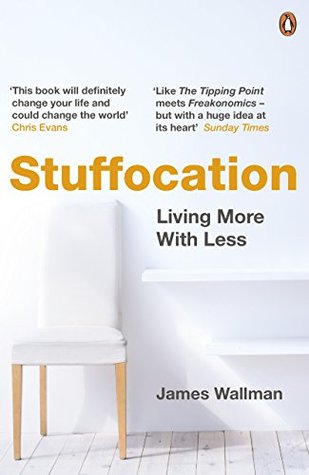More on this book
Kindle Notes & Highlights
The mass migrations of the twentieth century, from small communities where everyone knew everyone else to large metropolises where you barely knew your neighbour, meant that what you did with your time became virtually useless as a way to signify status. In the relative anonymity of urban and, to a lesser extent, suburban life, your neighbours, friends, colleagues at work, and the people you passed on the street were much more likely to see what you owned than know what you did.
Social media also plays a vital role in making experiences appear more valuable, thanks to their pivotal role in the ‘rarity principle’. According to this idea, the bigger the difference between the number of people who have access to something and the number of people who know about it, the rarer and more valuable the thing is.
we prefer to listen to people talk about things they’ve done – like the camping weekend they went on – rather than their possessions – like their new sofa.
In short, in the virtual game of Snakes and Ladders that is modern society, characterized by meritocracy and social mobility, status matters, and it matters more now than at any previous point in history.
Thanks to social media we want to keep up with what the Joneses are doing. Are we going to enough pop-ups, conferences, and concerts – like all our friends and acquaintances seem to be?
Facebook, you might say, is giving us a new way to keep up with the Joneses, and a new way to worry that we may not be keeping up.
since we check these throughout the day – when we get up and when we go to bed, on the toilet, on the train, in the classroom, and in the office – that means that we are playing the game more regularly, and thinking about the game more too. As we do that, we are more likely to end up feeling anxious and stressed, and perhaps depressed, about status.
It is like the people you know are living the airbrushed, stage-managed lives you see in luxury advertisements – which are deliberately designed to make you feel inferior.
since we are all connected to so many people on Facebook, there is always someone jetting off to Costa Rica, having lunch in Lima, lounging on a boat in the Mediterranean, or attending a wedding in Marrakech.
This constant bombardment leaves us feeling always at the bottom of the pile looking up. And that, in a meritocratic system like ours, can leave us feeling anxious, stressed, and depressed.
You are more likely to be happy, so studies have shown, if you do something for intrinsic reasons.
it seems as if some people spend so much time posting updates that they are in it less for the enjoyment of the experience, and more so that everyone knows what they are up to.
Experiences like hauling your family across a continent or flying around the world may only be available to people with plenty of money. But I picked those examples simply because they illustrate the point. Experiences that cost nothing – like walking in the park, chatting with a friend, going to church, or dipping your toes in the sea – are all just as likely to lead to happiness.
If you consider how often people check their social media feeds and post status updates, you could say the practice of experientialism has become hyper-observable.
you could try experientialism this month, simply by spending what you normally would, but with the goal of having nothing new at the end of the month – except for the memories and stories from the things you did.
There are other signs of the shift in what the next generation of consumers, people in their twenties and thirties whom marketers call ‘Millennials’, are doing, and in what they are not doing. They are no longer buying cars like their parents did, and they are choosing to live in small, city-centre apartments
There are other signs of the shift in what the next generation of consumers, people in their twenties and thirties whom marketers call ‘Millennials’, are doing, and in what they are not doing. They are no longer buying cars like their parents did, and they are choosing to live in small, city-centre apartments
Many, like Richard Easterlin or Australia’s foremost wellbeing champion, Bob Cummins, believe that level was reached years ago. ‘Mature markets,’ says Cummins, ‘arrived some decades ago at the point at which there was no further benefit in increasing material wealth, as far as the majority of citizens are concerned at any rate.
There are two other reasons why GDP has become the benchmark for progress. It is relatively easy to count and it is simple.
The simplicity of GDP is also its Achilles heel, as a measure of general progress at any rate. It counts goods and income, but it has no opinion of them. It counts quantity of stuff, even when all that stuff does is pollute the air and blot the landscape, or helps us keep up with the Joneses but does nothing for our wellbeing. But GDP does not measure quality of life. It has nothing to say about better health, living longer, or sledging on a school day.
Is Stuffocation middle-age angst?
Because just as fast as we wealthy few try to curb our collective footprint and reduce our consumption, there will be a billion or so others queuing up to take our place and make their mark on the world
The government plans to improve wages, so people spend more. It is making credit easier to come by, so people spend more. It is improving the welfare system, letting its people worry less about the future, so they save less and spend more. It is also improving the country’s parcel delivery system, so people spend more on e-commerce.


